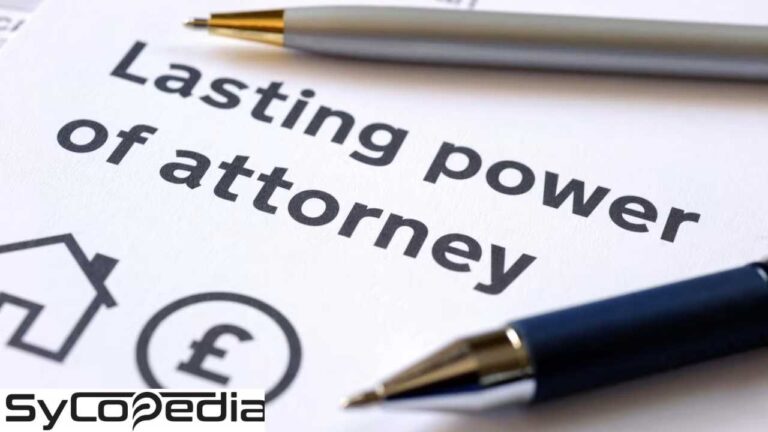Understanding the issues regarding Lasting Power of Attorney Investments may be , especially challenging when it involves matters regarding investments. The governor and his deputy, similar to other Kenyans, lack needs to gain the full knowledge of the powers given to them and the responsibilities they have to the unelected officers they appoint.
Also unknown is what can legally be done under an LPA to manage the property belonging to another person. Fortunately, there is the cognizance of how LPAs operate to define their applicability and limitations in financial settings.
This article will to de-mystify these roles and limits of Lasting Power of Attorney Investments situations, together with practical examples and advice. If you are a prospective participant, a legal practicing attorney, or simply interested parties wanting to gain insight into the consequences of LPAs, here are facts that may be useful in making significant decisions pertinent to financial management.
Understanding Lasting Power of Attorney
What is a Lasting Power of Attorney?
A Lasting Power of Attorney (LPA) is an operational instrument by which you can appoint a person of your confidence as ‘attorney’ to make decisions on your behalf in the event of your incapacity.
This could be due to an illness or an accident, for example, an employee being involved in an accident that makes them unable to work or an employee falling ill through sickness that renders them incapable of working for some time.
This means the kind of decisions the attorney can take for you, and according to LPA, the general decision involves your financial affairs, your welfare, or both and can include your health matters.
Types of Power of Attorney
There are mainly four types of LPAs, each serving different purposes: There are mainly four types of LPAs, each serving different purposes:
- Health and Welfare LPA – This allows the attorney to make decisions about things like your daily routine, medical care, and where you live.
- Property and Financial Affairs LPA – This permits the attorney to manage your finances, such as paying your bills, collecting your income, and selling your house if necessary.
- Enduring Power of Attorney (EPA) – This covers decisions about your property and finances, and unlike an LPA, it can be used both before and after you lose mental capacity.
- General Power of Attorney(GPA) – This is generally for temporary situations, where you might need someone to act on your behalf for a short period, like selling a house or managing your finances while you’re traveling.
Powers and Responsibilities of an Attorney under an LPA
What a Power of Attorney Allows You to Do
LPAs come in two types: the property and financial affairs LPA and the health and welfare LPA. As an attorney under this type of power, you are vested with the responsibility of making decisions regarding the donor’s property and financial affairs or the donor’s health and welfare, respectively.
This may mean investing, banking, and, where desirable, selling property, all on behalf of the donor.
Responsibilities and Liabilities of Lasting Power of Attorney Investments
- Uphold Trust and Fairness: Attorneys must not use their position to unduly favor the donor beyond what is legally appropriate in the relationship of trust and power.
- Acknowledge Preferences: Attorneys should consider and respect the donor’s past and present preferences when making decisions.
- Avoid Personal Gain: They must not receive any financial gain from their role as an attorney that isn’t explicitly allowed under the terms of the power of attorney.
- Separate Financial Management: Attorneys are encouraged to avoid commingling (mixing) the donor’s funds with their own personal funds.
- Transparent Record Keeping: They must keep detailed accounts of all transactions conducted on behalf of the donor.
Critical Considerations for Lasting Power of Attorney Investments
Evaluating Investment Opportunities
When managing investments under the LPA, attorneys must assess the particular investment holding and risk profile in relation to the donor’s financial circumstances. The objective should be the highest achievable return on such investments that would suit the donor’s taste and situation.
Risk Management Strategies for Lasting Power of Attorney Investments
Because this process exposes attorneys to considerable financial risks, they must develop ways to manage these risks:
| Strategy | Description |
|---|---|
| Diversification | Spread investments across various asset classes to avoid concentration in one or a few risky investments, reducing potential losses. |
| Regular Monitoring | Regularly review the performance of the investment portfolio to ensure that it aligns with the donor’s financial goals and market conditions. |
| Adapting Strategies | Modify investment strategies based on changes in economic factors, or shifts in the donor’s health and welfare, to optimize returns and minimize risks. |
| Professional Consultation | Engage with financial experts when necessary to make informed decisions and ensure compliance with legal obligations. |
Investment Decisions and Lasting Power of Attorney Investments

Can a Power of Attorney Invest Money?
Of course, the attorney under a Lasting Power of Attorney may decide to invest in the donor’s property. However, the level of these powers varies depending on the provisions of the LPA.
The attorney has to perform duties specified in the LPA in the financial best interest of the donor. This implies making prudent choices and using the appropriate level of risk and return on investments.
Lasting Power of Attorney Investments Examples
Example 1
Let’s consider a situation where an attorney is in charge of the financial affairs of an older incapacitated person. If the LPA gives permission, the attorney may consider moving from the riskiest shares to safer bonds to preserve the capital for later use while generating constant income, depending on the donor’s risk tolerances and investment horizon.
Example 2
Another instance might be where a donor has given the attorney money to facilitate an investment in real estate. However, before an attorney can invest such an amount, they have to consider the donor’s long-term financial objective and capacity, so that such an investment will not put the donor in a vulnerable situation where they will lose all their money.
Compliance and Legal Guidelines for LPA Investments
Legal Compliance in Investments
Another essential legal requirement that has to be adhered to by the attorneys about investments of the protected party under an LPA is related to matters. This encompasses the performance and compliance with laws concerning investment activities as well as the legal responsibilities of fund managers.
Compliance helps make the investments not only legal but, more to the point, in the donor’s best interest. Every lawyer should acquaint herself or himself with the legal requirements concerning investments, for example, fraud, insider trading, or market manipulation.
Avoiding Conflicts of Interest
Lawyers should desist from cases that conflict with the donor’s interests to safeguard their interests. This means any business dealing that may be advantageous to the attorney at the donors’ cost.
For instance, it is improper for an attorney to use the donated funds to invest in a business that the attorney owns or in which the attorney has a significant interest unless the attorney has adequate and verifiable reasons to justify using the donor’s money to the attorney’s benefit.
Being transparent with all the transactions and getting a third-party opinion where the need arises are reasonable measures to ensure that ethical standards are followed and that the donor’s property is well protected.
The Most Powerful Power of Attorney
- Broad Financial Authority: Grants the attorney the ability to manage nearly all financial transactions on behalf of the donor.
- Real Estate Management: Enables the attorney to handle the sale and management of property, including land.
- Bank Account Oversight: Allows the attorney to manage the donor’s bank accounts, which can include withdrawing, depositing, and transferring funds.
- Investment Portfolio Control: Empowers the attorney to make decisions regarding investment portfolios, including buying, selling, and adjusting investments according to market conditions or the donor’s best interest.
- Immediate Activation: Can be utilized as soon as it is enacted, unlike the Health and Welfare LPA, which only comes into effect when the donor is deemed incapable of making their own decisions.
- Comprehensive Financial Control: Structured to allow the attorney to make all-encompassing financial decisions, providing a powerful tool for complete financial management.
POA in Investment
The role of a Power of Attorney (POA) in the management and planning of investment strategies cannot be overemphasized because it provides for the management of investments once the person is incapacitated.
The Lasting Power of Attorney Investments planning ensures that the physical and financial objectives of the donor, as well as their risk-admissible limit, are met as per the direction laid down by them.
For example, an attorney under a Property and Financial Affairs LPA may still implement a predetermined investment program associated with the donor’s retirement, which the attorney can modify in light of market conditions or the donor’s needs.
Conclusion
Anyone needs to learn about the various Lasting Power of Attorney Investments types and their specific function in managing investments. The Property and Financial Affairs LPA has wide powers that enable it to provide a comprehensive package of financial management, including the power to make investments.
Hiring a knowledgeable attorney assists a person in gaining control of their monetary assets by making decisions on the use of the same, especially in a situation where the person is incapacitated.
Thus, including an Lasting Power of Attorney Investments plans helps to support financial durability and defends the donor’s interests, guaranteeing the correct and lawful handling of assets.
FAQs
Who can override a power of attorney?
The courts can requisition a power of attorney (POA) if the courts decide that the attorney is not protective of the donor. Furthermore, the donor may also revoke a POA as and when they wish, provided they have the requisite capacity to do so.
What does power of attorney allow me to do?
A power of attorney is an agreement that gives one person the mandate to make decisions on your behalf. Depending on the kind of POA, it can involve your money and resources, the buying or selling of your property or business, and even health-related matters.
What is POA in investment?
With regard to investments, the Power of Attorney provides the appointed attorney with the necessary authority to conduct the donor’s investment business. This may involve purchasing securities, businesses, or other property, undertaking trading of the same, and handling their disposition.
What is the most potent power of attorney?
Of all the powers of attorney discussed here, the most potent is the Durable Power of Attorney for Property and Financial Affairs. It enables an attorney to deal with virtually every aspect of a donor’s financial affairs and remains appropriate if they become incapacitated.


